User:Daniel Mietchen/Talks/Biogeosciences and the Wikimedia ecosystem
About[edit]
This page assists a talk given on 6 April 2023 at the Max Planck Institute for Biogeochemistry.
Logistics[edit]
- Time and location: 14:00 CEST in room C0.001.
- For the abstract, see here.
- The talk's materials are accessible on-wiki via https://w.wiki/6XMg (mobile) and https://w.wiki/6XWN (desktop) and archived on Zenodo at https://doi.org/10.5281/zenodo.7792227. You can also download the current version as a PDF via this link or explore the page in slide form or through its version history.
- Discussion is invited throughout.
Statistics[edit]
- How many people are in the room? 20
- How many people are connected remotely? 23 (their responses to the questions could not be recorded)
- How many have used open-source software? 20
- How many have contributed to open-source software? 10
- How many have used open data? 20
- How many have contributed to open data? 17
- How many have used Wikipedia or any of its sister sites? 20
- How many have contributed to any of the Wikimedia projects? 3.5
- How many think that asking such questions here requires ethical approval? 2
Wikimedia projects[edit]

Wikipedia[edit]

Wikipedia is available in over 300 languages, together getting multiple billions of monthly page views.
Wikimedia Commons[edit]

Wikidata[edit]
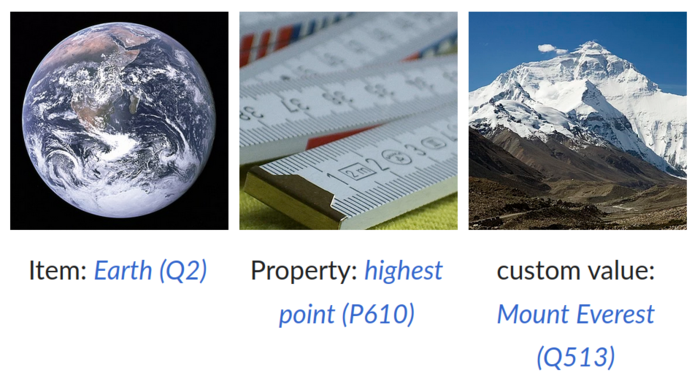
Structured data about more than 100 million entities.
Other Wikimedia projects[edit]

An example of how each of these projects has its own ways of sharing knowledge around a topic
The landscape around Wikimedia[edit]

"By 2030, Wikimedia will become the essential infrastructure of the ecosystem of free knowledge, and anyone who shares our vision will be able to join us."
Wikimedia for research[edit]
Wikimedia about research[edit]

This photo of what is thought to be a new species of crane fly was on Wikimedia Commons, through which researchers discovered it (background).
Wikimedia resources relevant for research[edit]

Scholia provides about 30 types of scholarly profiles, all based on Wikidata
Wikibase[edit]
Wikibase background[edit]
- https://wikiba.se/
- Open-source software suite mediating between MediaWiki and the Semantic Web
- Used on Wikidata
- Increasingly used in other MediaWiki instances
- Wikibase brochure
Wikibase data model[edit]

Data model for the Phaistos Disc (Q465338 on Wikidata)
Wikibase ecosystem[edit]
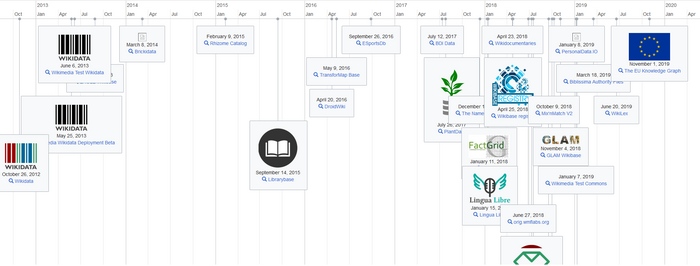
This query provides more recent data
Example Wikibase instance[edit]

Lingua Libre can be used to record the pronunciation of words and phrases in any language(s) known to Wikidata
Wikimedia for Biogeosciences[edit]

Categories, infoboxes, identifiers, links
Media files[edit]
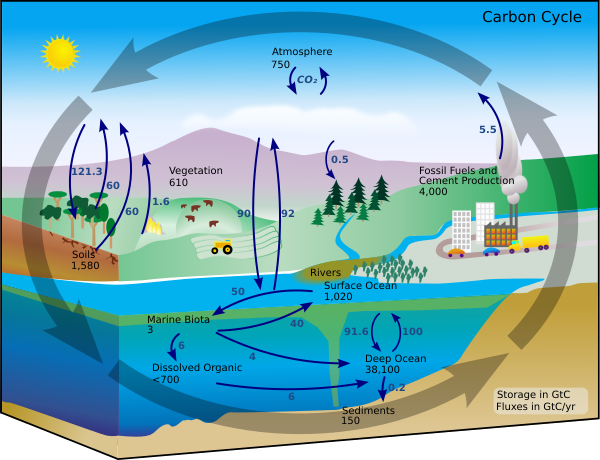
A carbon cycle diagram available in 18 languages
Articles[edit]

Tools like Citation Hunt assist in improving verifiability.
Structured data[edit]
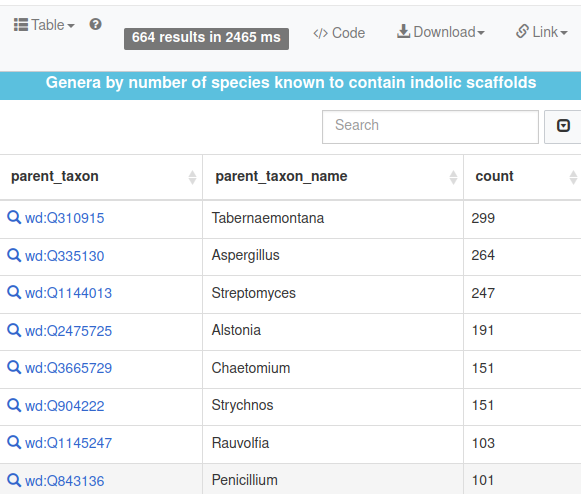
Structured data from different domains can be queried.
Research for Wikimedia[edit]
Research about Wikimedia[edit]
- Research by and/ or with the Wikimedia community
- Publications about
Research resources relevant for Wikimedia reuse[edit]
- Research materials can be reused if they use
- Open standards
- Open-source software
- Open hardware
- Open licenses on website and when sharing papers, software, data, PR materials, hardware designs etc.
- Machine actionable formats
- Public version history for any such materials
- Any published research materials may be cited
Biogeosciences for Wikimedia[edit]

A map of the basin of Lake Ohrid in North Macedonia, originally published in Biogeosciences, now illustrates the article about the lake in the Macedonian Wikipedia.
Opportunities for further interactions[edit]
Motivation[edit]
- Wikimedia projects are already widely used in research and many other contexts
- Reuse on Wikimedia projects is a great way to demonstrate Reusability of research in the FAIR sense
- Wikimedia contributions can be integrated with educational activities
- Five ways academics can contribute to Wikipedia
Further reading[edit]
- The LOTUS initiative for open knowledge management in natural products research (2022)
- Wikidata as a knowledge graph for the life sciences (2020)
- Geospatial data and Scholia (2018)
- Science Is Shaped by Wikipedia: Evidence from a Randomized Control Trial (2017)
- Wikipedia as a gateway to biomedical research (2017)
- Amplifying the impact of open access: Wikipedia and the diffusion of science (2016)
- Topic Pages: PLoS Computational Biology Meets Wikipedia (2012)
Basic principles of Wikimedia projects[edit]

Some key principles that the ecosystem is built on
Five pillars of Wikipedia[edit]
- WP:5P1 Wikipedia is an encyclopedia
- WP:5P2 Wikipedia is written from a neutral point of view
- WP:5P3 Wikipedia is free content that anyone can use, edit, and distribute
- WP:5P4 Wikipedia's editors should treat each other with respect and civility
- WP:5P5 Wikipedia has no firm rules
Core content policies[edit]

Core content policies on the English Wikipedia; the other wikis have similar ones.
Contributing to Wikimedia projects[edit]

Listen to the edit stream:
multiple Wikipedias, Wikidata, both, recording
Contributing to Wikidata[edit]

Geolocated Wikidata items, with highlighting of changes between October 2018 and May 2019
Contributing to Wikimedia Commons[edit]

Contributing to Wikipedia[edit]

There is always room for improvement, and there are initiatives like WikiProject Climate Change or #365climateedits to address that.
Issues with contributing to Wikimedia projects[edit]
What I wonder is why professors don't curate [pages on] Wikipedia and add course materials and open access sections of textbooks, much of which they post online anyways. We aren't really seeing the potential that you would hope for with all of the Web 2.0 tools out there. We aren't seeing the academic community take advantage of them as much as other subsets of the community. — David Lipman (2010)
Wikifying biogeosciences[edit]
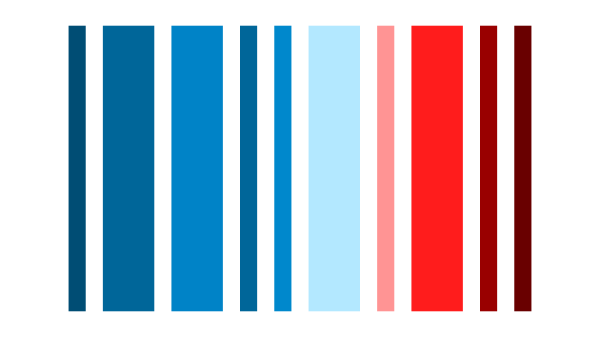
Increase opportunities to participate in the research process[edit]

In the FossiLab at the National Museum of Natural History in Washington, citizen scientists prepare fossils in an open-science fashion, with the public invited to observe.
Contextualizing invasion biology[edit]

A Wikidata query for topics related to invasion biology
Opening up MPI-BGC[edit]
- What can research institutions do to encourage open science?
- What about some pilot project run in an open-notebook science way, so that everyone can get a better feeling for how this works?
- What about the institute's ecological footprint and changes thereof?
Opening up climate communication[edit]
Unpacking IPCC and IPBES Reports (2022) — non-open licensing and encapsulation in PDFs are an obstacle to reuse of images or citation information
Wiki99[edit]
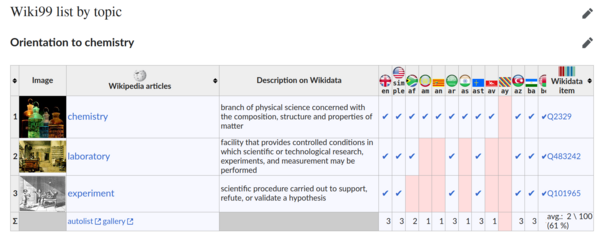
Wiki99 for chemistry. What about doing one for biogeochemistry?
Linking computational models across domains[edit]
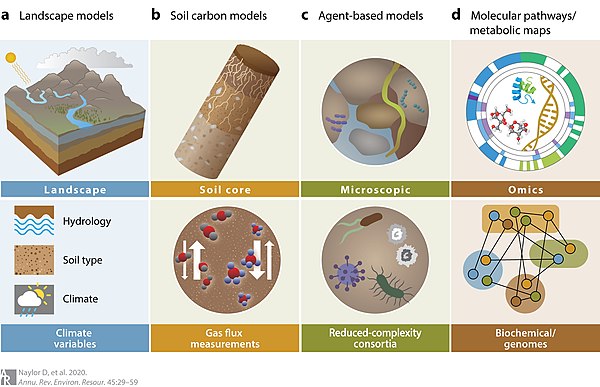
The NFDI consortium for mathematics wants to bring together modellers from different domains to discuss best practices for sharing models.
Linking arts and sciences[edit]
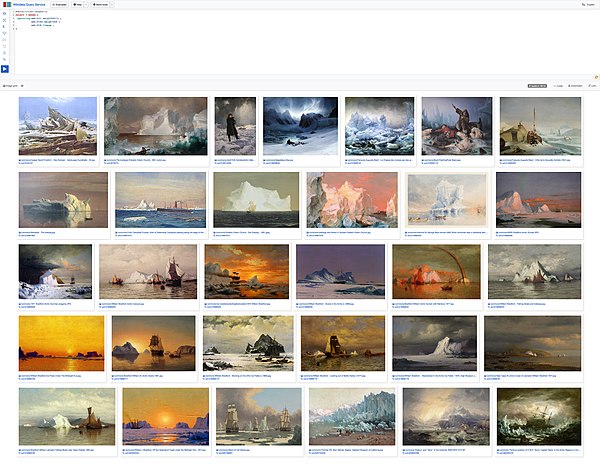
Thanks[edit]

Abstract[edit]
Background[edit]
This talk explores existing and potential interactions between biogeoscience research and education on the one hand and the Wikimedia ecosystem on the other. This ecosystem - which includes sites like Wikipedia, Wikimedia Commons, Wikidata and their respective communities and workflows - represents a sociotechnical platform providing a vast and continuously curated repository of openly accessible knowledge and reusable materials on a wide range of topics, including many that are relevant for biogeosciences. This resource is leveraged at the scale of billions of monthly direct pageviews and in many more indirect ways, e.g. via search engines or large language models.
Focus[edit]
The presentation begins by providing a general overview of the Wikimedia ecosystem, its structure, and its interactions with and impact on scientific communication. We will then explore how biogeosciences are represented and how biogeoscience-related communities can engage with the Wikimedia ecosystem, including reviewing Wikipedia articles, uploading scientific images or media files to Wikimedia Commons, utilizing Wikidata to connect and visualize reference data across knowledge domains or exploring open-science workflows taking place on Wikimedia infrastructures.
Pros and cons[edit]
We will also discuss the benefits of engaging with the Wikimedia ecosystem, including increasing the visibility and impact of biogeoscience research, improving public understanding of scientific concepts, scientific contributions to societal discourse, and promoting collaboration and networking among scientists as well as between them and others. Additionally, we will cover some of the challenges and potential pitfalls of engaging with the Wikimedia ecosystem, such as the different writing styles and attribution mechanisms and the potential for conflicts of interest, bias and misinformation, along with mechanisms for addressing such issues.
Related talks[edit]
- Impact-oriented Citizen Science: The role of Wikipedia, Wikidata and OpenStreetMap (2023)
- Climate knowledge and the Wikimedia ecosystem (2022)
- Unpacking IPCC and IPBES Reports (2022)
- Multilingual Structured Climate Research Data in Wikidata - The Community and Data Perspectives (2020)
- Bridging Science, Art, and Community in the New Arctic through Wikimedia projects (2019)
- Visualizing the research ecosystem of ecosystem research via Wikidata (2018)
- Wikimedia as a platform for scientific information — given at the neighbouring MPI for Chemical Ecology (2012)
